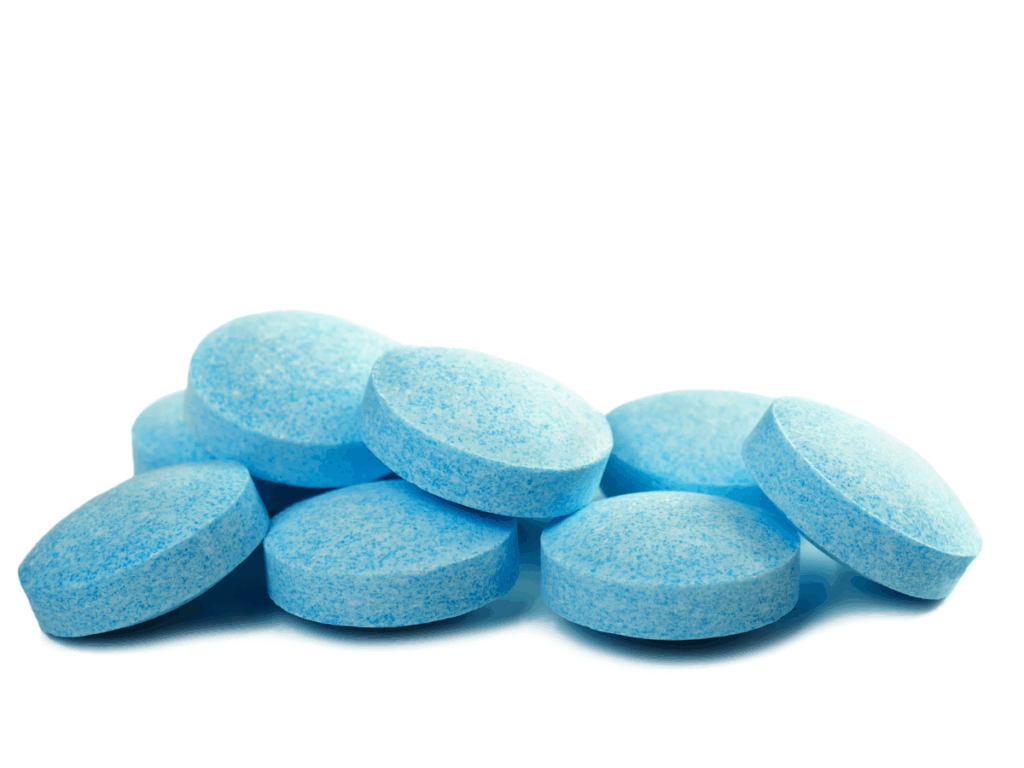
What Is Adderall?
Adderall is the trade name for a combination of dextroamphetamine and amphetamine, potent Schedule II central-nervous-system (CNS) stimulants approved to treat attention-deficit/hyperactivity disorder (ADHD) and narcolepsy. When taken exactly as prescribed, the medication heightens dopamine and norepinephrine signaling, improving focus, sustained attention, and executive control in people with ADHD.
Despite its legitimate therapeutic value, Adderall carries a high potential for misuse because the same neurochemical actions that improve concentration can also produce euphoria and a sense of boundless energy at above-therapeutic doses. In 2023, an estimated 17.8 million U.S. residents reported non-medical use of prescription stimulants such as Adderall, underscoring its widespread availability and diversion.
Recognizing Adderall Use Disorder and Addiction
Stimulant use disorder is diagnosed when a pattern of Adderall use leads to clinically significant impairment or distress, reflected in at least two DSM-5 criteria (e.g., tolerance, failed attempts to quit, cravings, or continued use despite harm) within a 12-month period. Because many people first receive the drug from friends, family, or leftover prescriptions, warning signs can be subtle: escalating doses, “doctor shopping,” crushed-pill insufflation (snorting), or using Adderall to offset alcohol or opioid sedation.
Legacy Healing Center clinicians encourage loved ones to watch for sudden weight loss, erratic sleep, aggressive mood swings, or deteriorating academic/occupational performance—red flags that often precede a full stimulant use disorder diagnosis.
What Makes Adderall Addictive?
Biological Factors
Adderall’s surge of dopamine in the mesolimbic “reward” pathway reinforces drug-taking by linking the experience with powerful pleasure memories. Over time the brain down-regulates its own dopamine receptors in an attempt to restore equilibrium, creating tolerance and dependence that drive compulsive reuse. Genetic variants affecting dopamine transporters (DAT1) or catechol-O-methyltransferase (COMT) may amplify vulnerability to stimulant addiction.
Psychological Factors
Untreated ADHD, trauma-related stress, mood disorders, and perfectionistic personality traits frequently co-occur with prescription-stimulant misuse, as individuals self-medicate to sharpen concentration, blunt emotional pain, or enhance athletic or academic performance. Peer pressure on competitive campuses—or within high-stakes workplaces—can normalize “study-drug” culture, increasing the likelihood of experimentation and escalation.
How Does Adderall Affect the Brain?
Short-/Long-Term Effects on Brain
- Short-term: Increased alertness, elevated mood, faster reaction time, but also insomnia, irritability, and, at high doses, agitation or paranoia.
- Long-term: Chronic misuse can impair executive function, memory, and emotional regulation; neuroimaging studies show altered prefrontal-striatal circuitry and reduced cortical thickness, mirroring findings seen in cocaine and methamphetamine users. Persistent dopamine dysregulation raises the risk of depression during abstinence.
How Does Adderall Affect the Body?
Short-/Long-Term Effects on Body
- Short-term: Appetite suppression, dry mouth, dilated pupils, tachycardia, elevated blood pressure, and gastrointestinal upset are common even at therapeutic doses.
- Long-term: Prolonged high-dose use may lead to significant weight loss, cardiomyopathy, hypertension, and movement disorders such as tremors. Dermatologic issues (skin picking), dental problems from bruxism (teeth grinding), and weakened immune response have also been documented among heavy users.
Overdose Risk
Amphetamine toxicity can emerge at surprisingly low doses in sensitive individuals. Signs include severe agitation, hyperthermia, chest pain, arrhythmias, seizures, muscle breakdown (rhabdomyolysis), and circulatory collapse cdc.gov Co-ingestion with other stimulants magnifies cardiovascular strain, while mixing Adderall with benzodiazepines or opioids masks warning signs, increasing the chance of a fatal miscalculation.
Adderall Withdrawal Symptoms
Because the drug accelerates neurotransmitter release, abrupt cessation leaves depleted monoamine stores, triggering a “crash” marked by profound fatigue, hypersomnia or insomnia, depression, anxiety, anhedonia, and intense cravings. These symptoms usually peak within 24–72 hours after the last dose and taper over one to two weeks, but low-grade dysphoria and cognitive fog can persist for months in heavy users.
Although Adderall withdrawal is rarely medically life-threatening, the risk of suicide attempts rises during the acute depressive phase—prompting Legacy Healing Center to provide round-the-clock psychiatric support and safety planning for every detox client.
Treatment Programs for Adderall Addiction
Legacy Healing Center delivers a full continuum of Adderall Addiction Treatment nationwide—from medically supervised detox in our upscale Florida, California, New Jersey, and Ohio campuses to step-down outpatient programming that fits real-world schedules. Our evidence-based approach integrates:
- Medical Detox: Board-certified physicians manage sleep disruption, blood-pressure spikes, and mood instability, using non-addictive medications and nutritional support to restore balance safely.
- Residential Inpatient & Partial Hospitalization (PHP): Daily individual and group therapy, psychoeducation on stimulant neuroscience, and holistic services (yoga, neurofeedback, nutrition counseling) in a resort-style environment foster early neurorecovery.
- Intensive Outpatient (IOP) & Outpatient: Clients practice relapse-prevention skills while reintegrating into work or school, supported by evening or virtual sessions.
- Evidence-Based Psychotherapies: – Cognitive-Behavioral Therapy (CBT) to reframe performance-oriented thinking patterns; – Contingency Management (CM) providing tangible rewards for stimulant-negative drug screens—an intervention SAMHSA identifies as the gold standard for stimulant use disorders.
- Dual-Diagnosis Care: In-house psychiatrists treat co-occurring ADHD, anxiety, depression, or bipolar disorder, aligning with NIDA guidance that integrated care yields better outcomes than sequential treatment.
- Family & Community Reinforcement: Loved ones learn communication and boundary-setting skills that reduce enabling behaviors and reinforce recovery at home.
- Sober-Living & Lifelong Mentorship: Graduates can transition into Legacy Healing’s structured sober-living homes and alumni network for weekly check-ins, peer events, and 24/7 access to recovery mentors.
Begin Your Recovery from Adderall with Confidence
If you or someone you love is struggling with Adderall misuse or withdrawal, know that support is here, and that recovery begins with a single, courageous step. Our experienced team is available 24/7 at (888) 534-2295 to guide you toward safe, discreet care tailored to your needs, from medically supervised detoxification to personalized treatment planning.
Not sure where to begin? You can verify your insurance confidentially online or speak directly with a compassionate specialist who will walk you through your options. We also offer trusted resources to help you better understand stimulant addiction and the recovery process, so you can move forward with clarity and peace of mind.
Taking that first step may feel daunting, but it opens the door to healing, balance, and renewed purpose. Reach out today and take your next step toward a healthier, more grounded future.
Immediate Help and Support
Whether you’re ready to begin treatment or simply gathering information, these trusted resources can help:
Legacy Healing Center: Call (888) 534-2295 to speak confidentially with a specialist in Adderall and prescription stimulant addiction.
SAMHSA National Helpline: Dial 1‑800‑662‑HELP (4357) for free, 24/7 support and referrals for individuals and families facing substance use.
988 Suicide & Crisis Lifeline: Dial 988 for immediate support in a mental health or substance-related emergency.
You’re not alone—support is already within reach.


 Written By:
Written By: Edited By:
Edited By: Clinically Reviewed By:
Clinically Reviewed By: 




 Verify Insurance
Verify Insurance